Quicklinks
Quicklinks
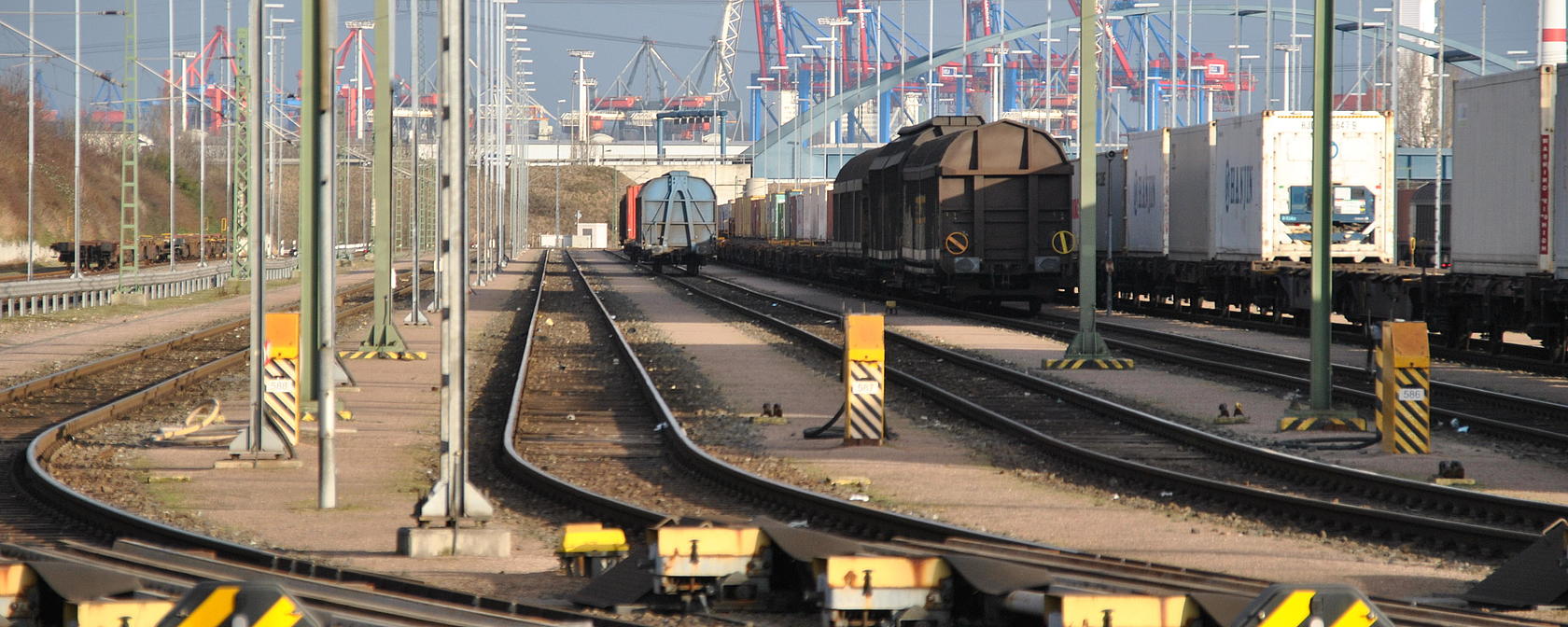
With the establishment of the wholly owned subsidiary Boxx Intermodal Logistics, the Warsteiner Group has taken a new path. It opened its own intermodal transport to external customers as well. “Our focus is on increasing environmentally sustainable transport and professionalisation of our services for our customers,” explains Daniel Küster, Head of Supply Chain Management at the Warsteiner Brewery and the Managing Director of Boxx Intermodal Logistics. He adds, “What’s important is that our range of services is not restricted to the beverage sector but applies to all freight that can be containerised.”
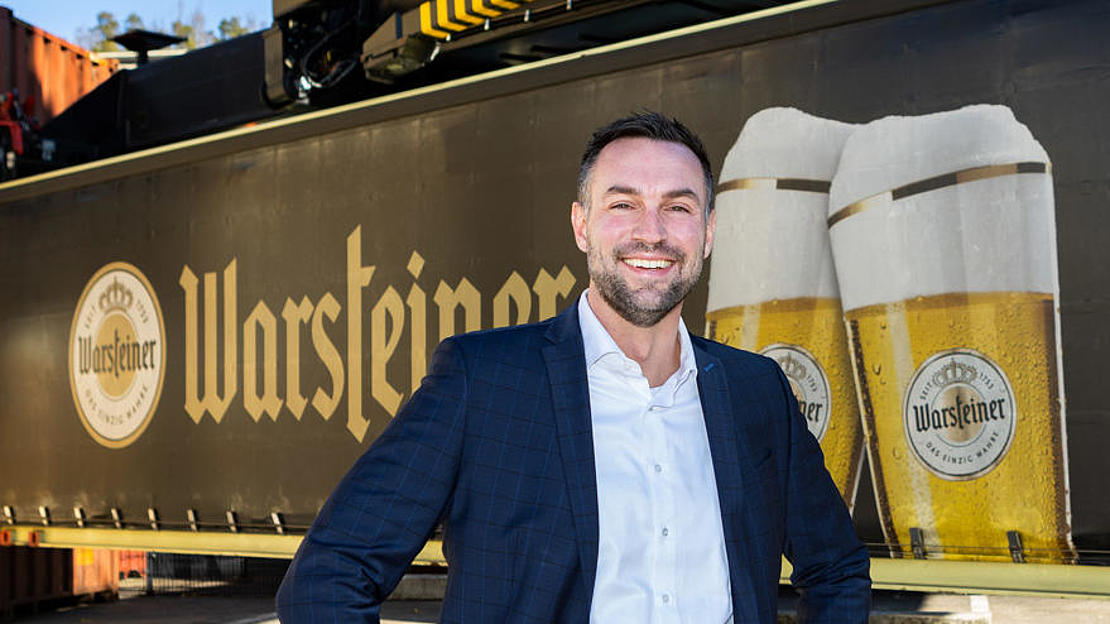
By now, many intermodal products provide delivery right to the customer’s door. With all-inclusive services as well as high delivery reliability and supply security, rail transport of goods is becoming a more environmentally sustainable alternative to road transport.
As described in the following article, rail is by far the most environmentally friendly mode of transport.
The Port of Hamburg is the world's largest rail port. Nearly one in every two hinterland containers reaches or leaves it by rail.
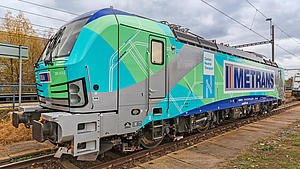
Where possible, Metrans is switching to green power – and is even going a step further. For most connections, the company offsets the emissions for containers to be transported in advance. CEO Peter Kiss comments, “The future belongs to eco-friendly logistics, and HHLA Pure is bringing this future a bit closer.”
2021, this corresponded to 912,000 TEU (standard containers) on routes to and from Hamburg, Bremerhaven and the adriatic port of Koper, with over 45,000 tonnes of CO2 offset through climate protection projects that meet Gold Standard certification criteria. Furthermore, the company began operation of the first electric truck in Hungary for the “last-mile” logistics asset in Budapest. Hybrid locomotives have been in use there for years where overhead lines for shunting with electricity are not available. The measures taken by Metrans are part of the entire HHLA Group’s objective of making production climate-neutral by 2040.
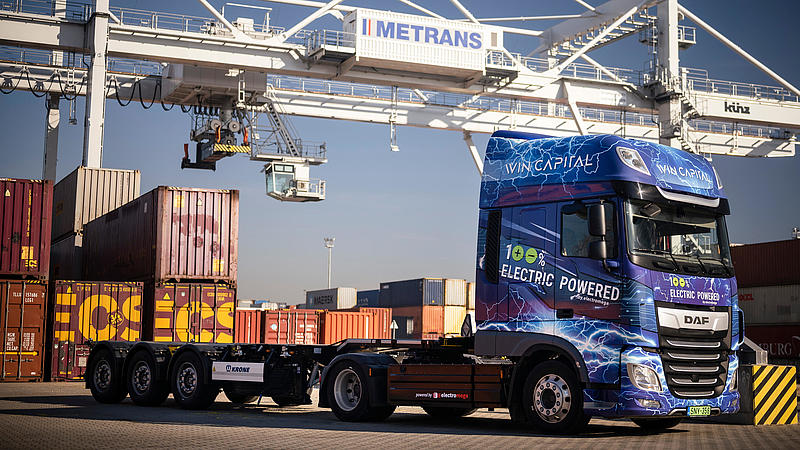
Another example is the Japanese shipping company ONE, which recently expanded its hinterland services. It now also offers transport to Basel or Dortmund from Hamburg or Bremerhaven. The shipping company selected TFG Transfracht as its partner. In terms of green logistics, TFG notably provides the main transport leg by rail. This avoids approximately 80 percent of the CO2 emissions of truck transport. Under the product name TFGeco, TFG covers the power requirements of rail transport with its trains entirely through renewable energies. The company is thus making a contribution to sustainable environmental protection.
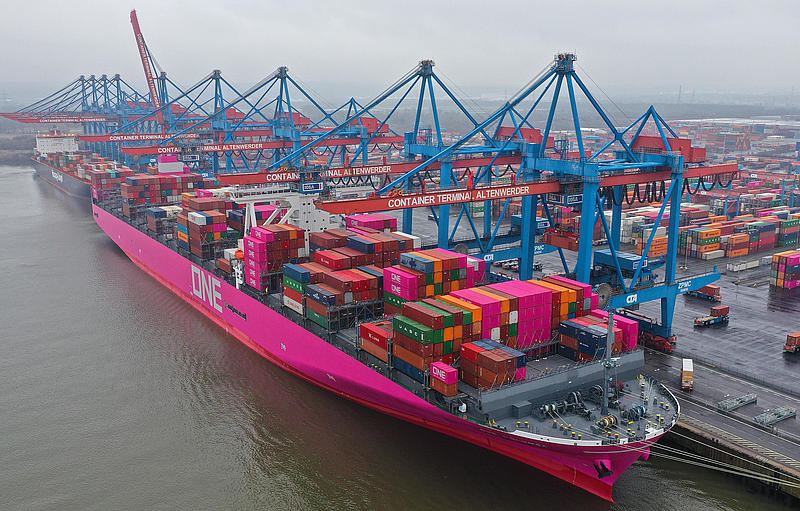
TX Logistik also depends on green power. By its own account, the company runs entirely on certified green energy in Germany. In order to keep energy consumption as low as possible during transport, the rail logistics company, which belongs to the Mercitalia Group (Gruppo FS Italiane), exclusively uses modern locomotives. The locomotives generate electricity themselves by partially recovering energy released while braking and transforming it into electrical energy, which is called recuperation. TX Logistik’s recuperation ratio has continually increased over the past few years and is currently at approximately 16 percent.
In perspective, the company wants to bring not only more containers, but also semi-trailers that can not be craned onto the railways. To this end, it has improved its NiKRASA handling system and has also already tested it in rail and terminal operations. The newly designed version no longer requires a terminal ramp and is stackable. In view of the usually limited yard capacities, this benefits combined transport.
These kinds of sustainability initiatives make rail increasingly interesting for forwarders, since many of them have set themselves ambitious goals for reducing CO2 emissions. Demand is correspondingly increasing, which also benefits start-ups such as modility, the online platform established by HHLA.
Those searching for transport solutions can easily find rail connections online, including for pre- and onward-carriage, and plan them individually via modility. Transport can also be booked immediately in just a few steps. This connects requests for rail solutions with train operators’ free capacities.
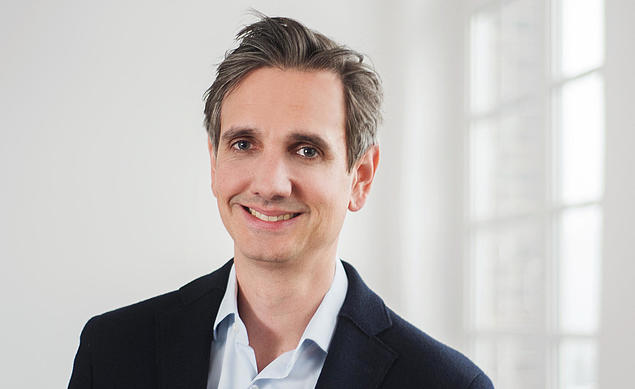
Hendrik-Emmanuel Eichentopf
“We want to contribute to improving how the European rail infrastructure is used,” says modility CEO Hendrik-Emmanuel Eichentopf. He justifies the need for this by explaining that, currently, more than 80 percent of goods that consumers use daily are transported by road. “And only 2.5 percent by combined transport,” he adds. “As a society, we want to reduce our carbon footprint, and we must therefore accelerate a “modal shift”, meaning a transition from the roadway to the railway.”